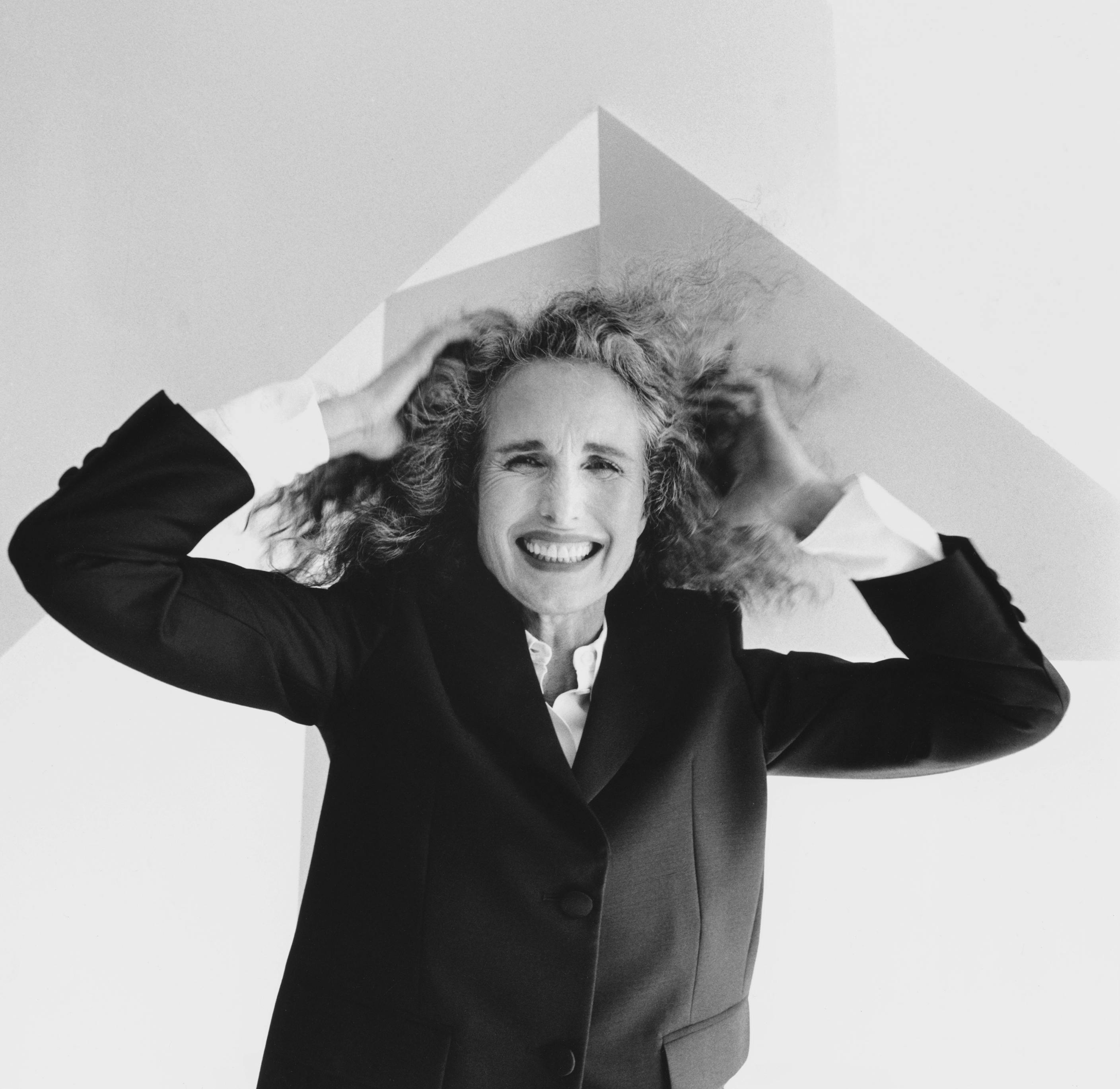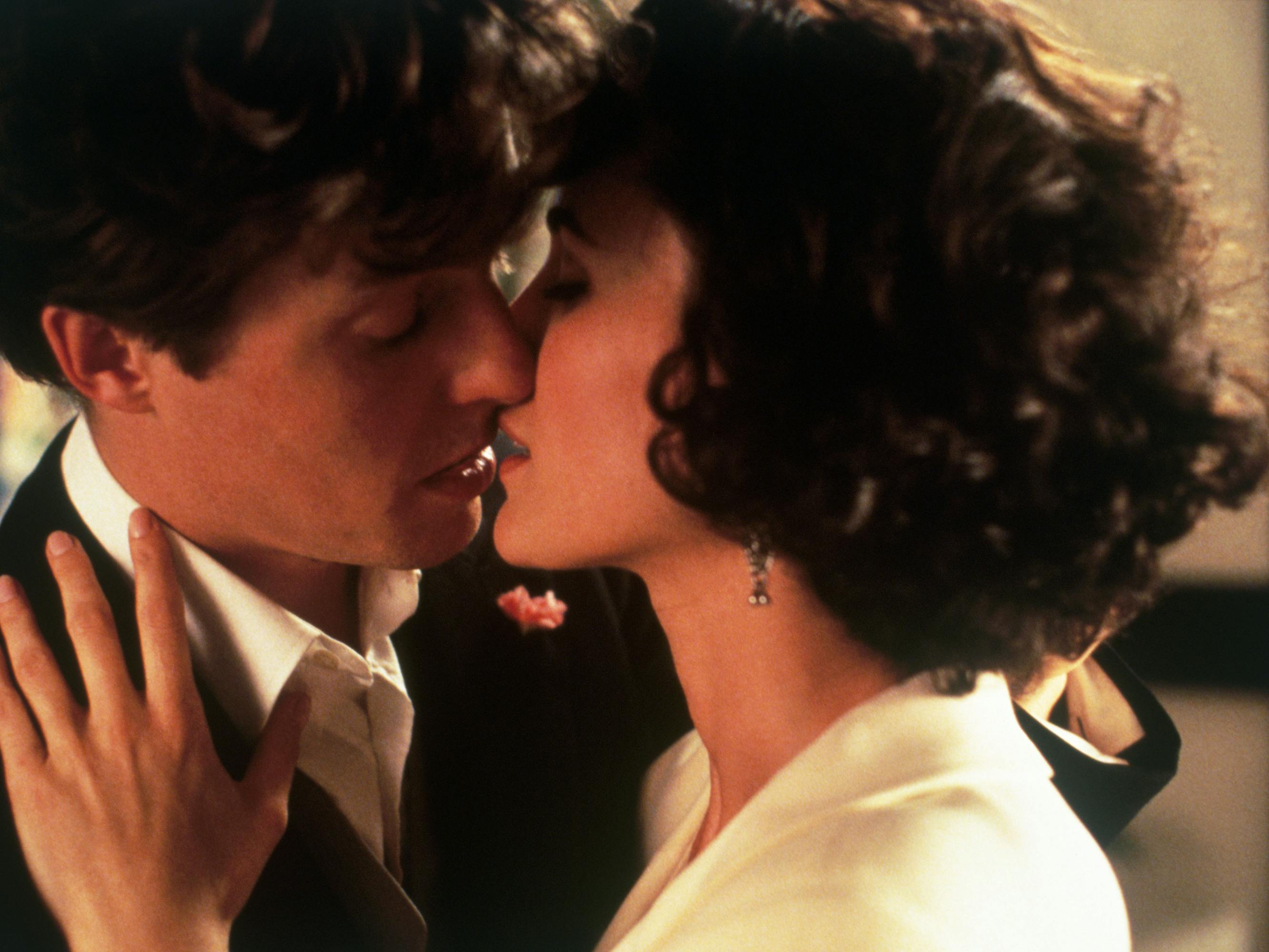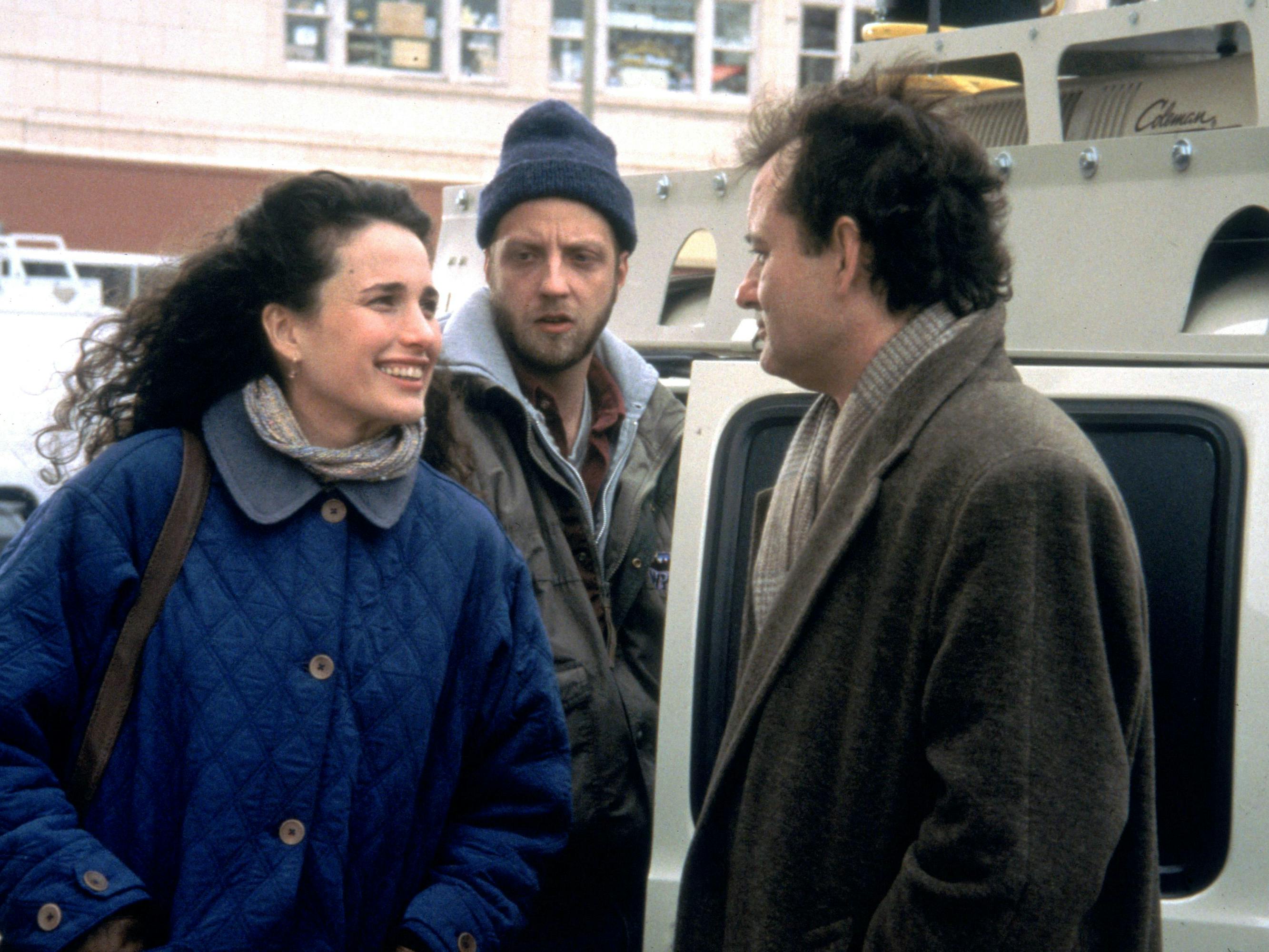In Maid, the actor explores new levels of empathy and introspection.
During quarantine, Andie MacDowell still found something to laugh at: herself. “I was home alone so much during that, I felt like a crazy person,” she admits. “I would talk to myself, and then I would laugh.” It was during these moments of giddy isolation that the veteran actress found inspiration for her new role.“I was like, ‘Oh my God, that’s Paula!’” MacDowell was developing her character for the 10-part drama Maid, in which she stars as Paula whose daughter Alex is played by her own daughter Margaret Qualley. These little, unhinged laughs sparked a thrilling idea: “It was the first time in a very, very long time that I’d had the opportunity to really embrace and embody a person.”
MacDowell has often won audience’s hearts with her breezy South Carolinian charm and unexpected wit with career-defining roles in Green Card, Groundhog Day, and Four Weddings and a Funeral. But Maid presented a new challenge — one that allowed her to draw from her early Method training at the Actors Studio and work with famed acting coaches Harold Guskin and Warren Robertson, as well as her own familial history of mental illness. “These opportunities are rare in my experience — a role where you really have so much to offer, so much to bring. I grew up in a family with people who have struggled with mental instabilities, and I know what the behaviors are like,” she explains. “So it wasn’t like I had to go search for it; I had experienced it.”
The dramatic miniseries follows Alex, a young mother whose decision to leave the abusive father of her young daughter sends them both into the punishing uncertainty of American socioeconomics. As Paula, Alex’s mother and occasional foil, MacDowell depicts a woman whose unresolved traumas and mental illness add frenzy to already delicate situations. It is a wholly new endeavor for the actress and a chance for MacDowell to flex her range, reminding audiences of her talent.
For one, as MacDowell explains, “You can hate her.” Maid’s third episode is a case in point. As Paula’s daughter Alex races to finish important governmental paperwork, Paula is buzzing beside her in a state of mania, taking up space and chattering about her latest artistic venture. However, in a key moment later in the episode, Paula is able to tune in to her daughter’s needs when a seedy halfway house becomes Alex’s only option besides living on the street or returning to her abusive ex. “It’s got great bones!” Paula assures her during their visit, offering to help by painting Maddy a mural of monkeys and sunflowers. “We’ll just bring the sunshine right in. It’ll be a real girl pad.” When her hypomania inevitably reverses course, she accuses Alex of being a worse mother than she ever was. It’s a gut-punch moment. “I never lost custody of you,” she retorts in a belittling manner, twisting the knife further. The rollercoaster that is Paula does not end there, however. It’s Paula who lifts the episode’s fourth act: When Alex returns to the halfway house to move in, she finds the promised mural: colorful, sprawling, sunflowers and all.
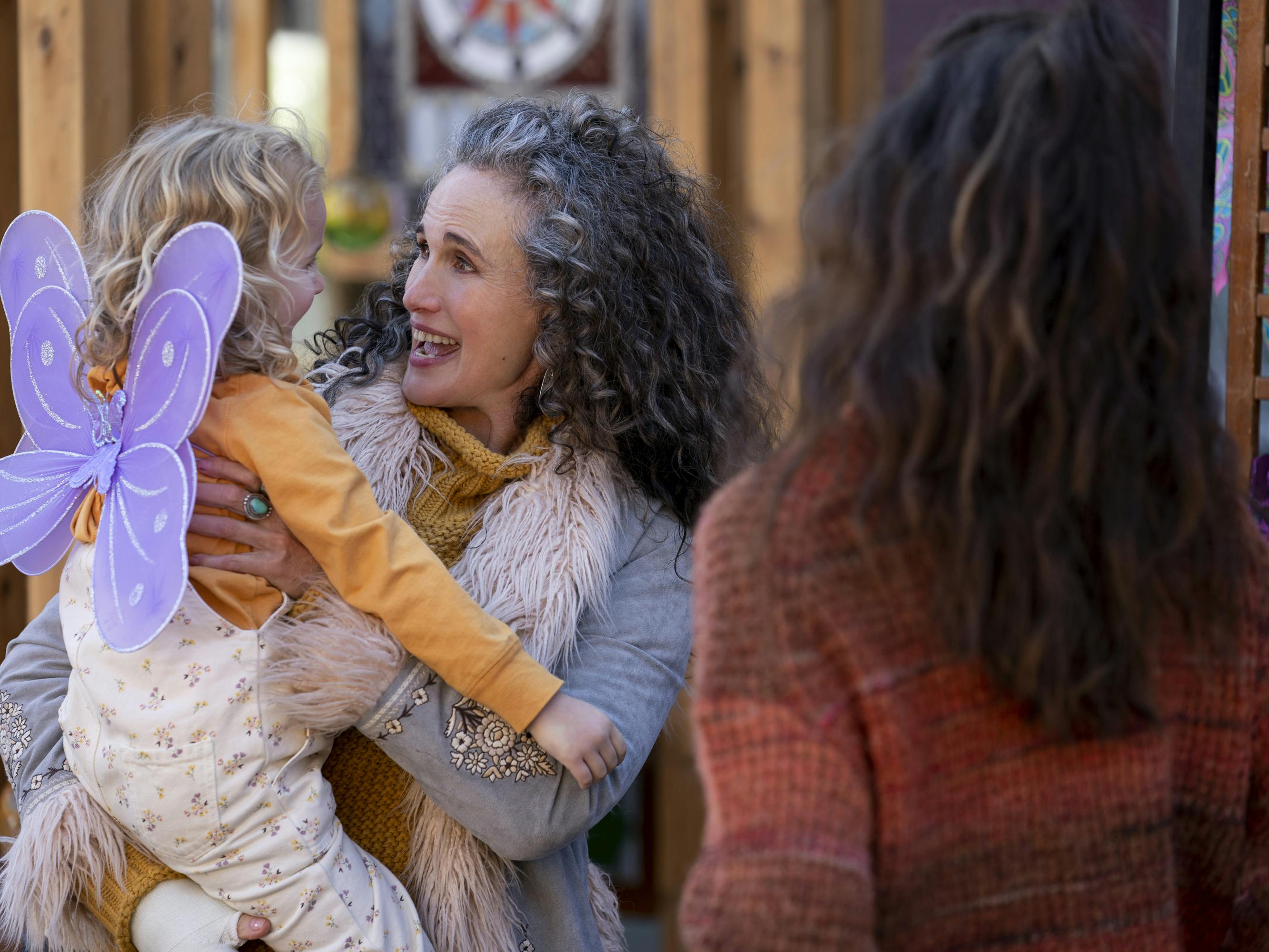
Andie MacDowell, Rylea Nevaeh Whittet, and Margaret Qualley in Maid
Maddy’s mural is a staggeringly moving symbol of the mercurial, often disappointing, and occasionally bright nature of loving and being loved by someone struggling with a mood disorder. MacDowell’s willingness to dive deep for this character grants actions like this one resonating power and emotional specificity. “I had such empathy for her illness. It’s probably deeper empathy than I’ve ever had before for someone in this position,” she explains.
“You can play a character that you think nobody is going to care for or love. And that’s what’s so beautiful about playing dark characters; they’re usually a lot more interesting. And if you find the nuances in them, and the heart, people will see it,” she explains. “What I found most fascinating is how many people would have these huge, gigantic smiles on their faces when they’d meet me because they loved Paula.”
A point of tension throughout the series is Paula’s relationship with her shifty, new husband, Basil, and Episode 7 opens with him having skipped town on Paula without so much as a goodbye. Soon, Alex breaks the news that Basil’s delinquency on their mortgage payments has put Paula’s house into foreclosure. The confrontation, which was filmed in the midst of an arctic storm, added tumult to the frenzy of Paula’s emotions. With snow and sleet flying around her, MacDowell was pushed to take the character from upset to thrilled (by the prospect of going on a road trip to find Basil) and then back to furious within the span of just a few scenes. “I had a lot of different and interesting transitions to make. I would say that transition was the most difficult for me,” she admits.
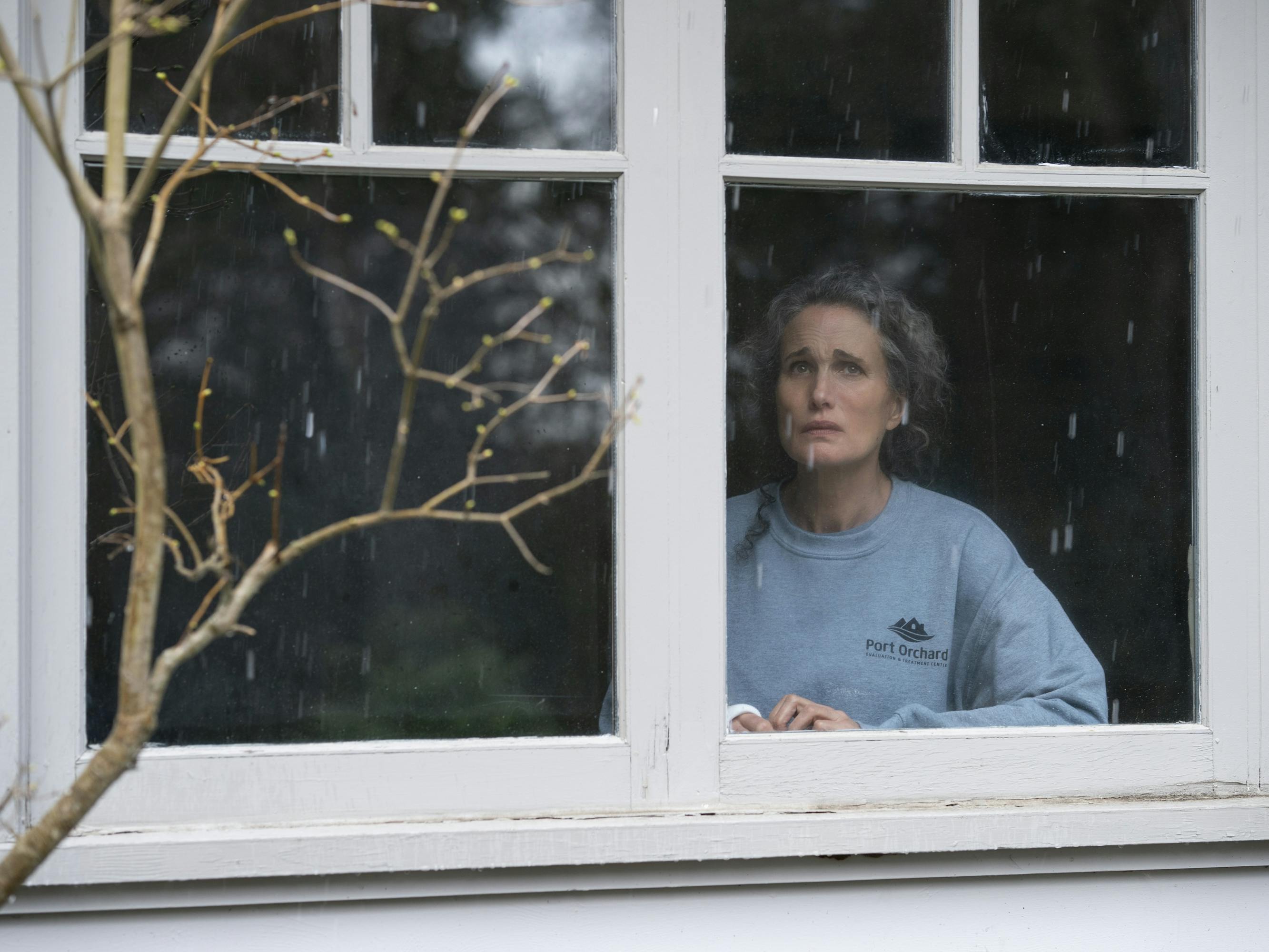
Andie MacDowell in Maid
As MacDowell points out, public perceptions of mental health have made leaps and bounds since her mother, who struggled with mental illness and alcohol addiction, died many years ago. “It used to be so embarrassing, and now it’s okay to go to therapy,” she observes. “It’s okay to talk about all these kinds of issues. People are very open about it, and I think it’s really, really important.”
Still, MacDowell knows that there’s always more that can be done — more understanding, more awareness, and more patience for people like Paula who struggle with these issues. “If Maid brought any light to that,” she says of the issues that plague the show’s characters, “Then we’ve done something more than just entertain people. It’s a good thing.”
